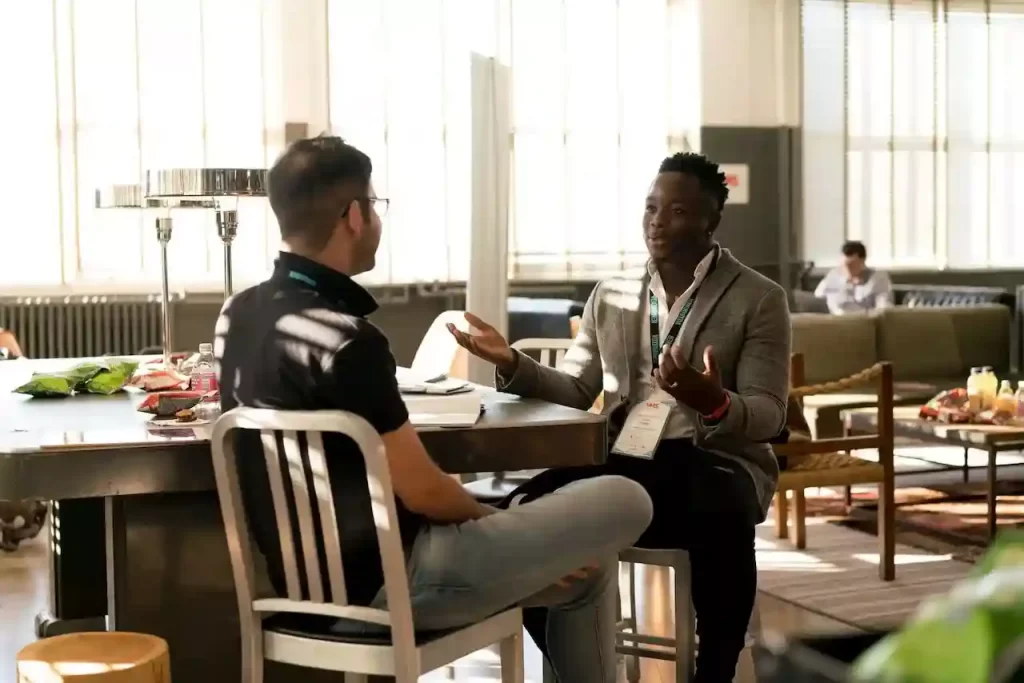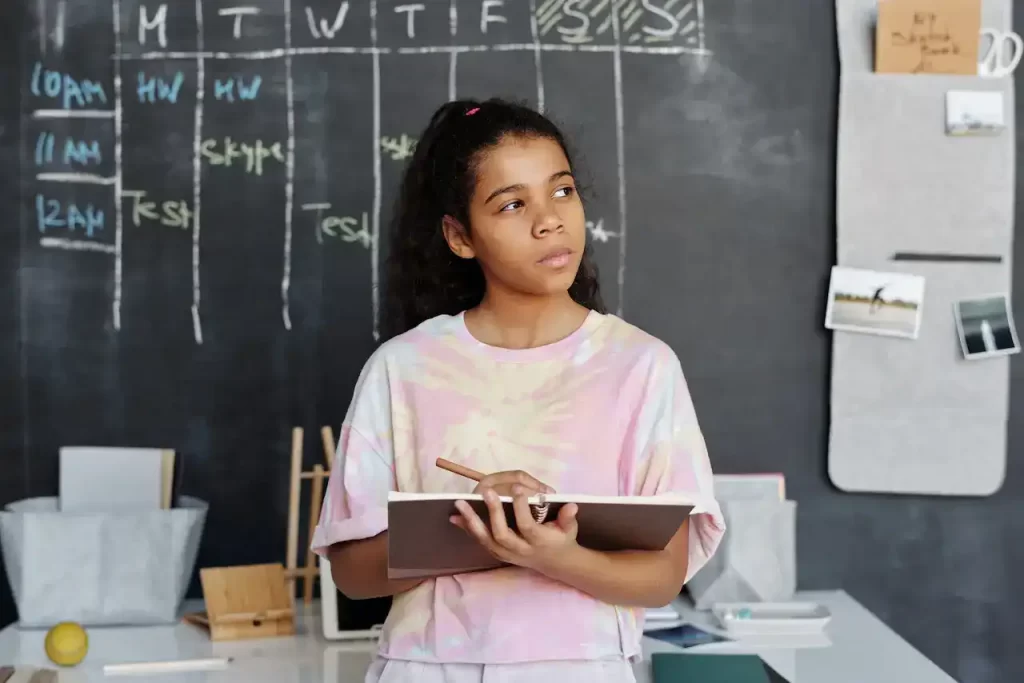First impressions are incredibly important in any social interaction, whether it be meeting new friends or interviewing for a job. In fact, making a great first impression in a job interview could be the deciding factor in whether or not you get hired. It’s not just about what you say during the interview, but how you present yourself and connect with the interviewer.
Fortunately, there are practical tips that can help you make a great first impression and improve your chances of success. These tips go beyond just dressing well and being on time, and delve into the nuances of human communication and connection.
In this article, we’ll go over five practical tips for making a great first impression in a job interview. We’ll cover topics such as body language, building rapport, and following up after the interview. By the end of this article, you’ll be equipped with the tools and knowledge to make a lasting positive impression on your interviewer.
Whether you’re a seasoned professional or just starting out in your career, making a great first impression is essential. So, read on and discover how you can improve your interview skills and boost your chances of landing your dream job.
Prepare Ahead Of Time
It’s always nerve-wracking to know that your first impression can make or break your chances of landing the job. But don’t worry, with a little bit of preparation, you can ace the interview and make a great first impression.
One of the most important things you can do before an interview is to prepare ahead of time. Research the company and the person you will be meeting with. This will give you an idea of what the company does, their values, and their goals. It also shows that you are interested in the company and have taken the time to learn about them.
Next, make sure you dress appropriately. You don’t want to be underdressed or overdressed for the interview. Dressing professionally shows that you are taking the interview seriously and are committed to making a good impression.
Finally, prepare some questions to ask during the interview. This shows that you are interested in the position and have put some thought into what you want to know about the company and the job. It’s also a great way to demonstrate your knowledge and enthusiasm for the position.
So, take the time to prepare ahead of time, dress appropriately, and have some questions ready to ask during the interview. With these tips, you’ll be on your way to making a great first impression and landing your dream job. Good luck!
Be Mindful Of Your Body Language
We all know that first impressions are incredibly important, and in a job interview, they can make or break your chances of getting the job. But did you know that your body language plays a big role in making that first impression?
It’s important to remember that your body language can say a lot about you before you even speak a word. Your posture, facial expressions, and even the way you enter the room can all contribute to the overall impression you make on the interviewer.
To make a positive impression, it’s essential to use positive body language. This can include maintaining good eye contact, sitting up straight, and smiling. These actions show that you are confident, engaged, and enthusiastic about the opportunity.
On the other hand, negative body language can be a major turn-off for interviewers. Avoid fidgeting, crossing your arms, or avoiding eye contact as these can be interpreted as signs of nervousness or disinterest.
By being mindful of your body language, you can make a positive first impression and set yourself up for success in the job interview. So, let’s dive into some specific tips and techniques that can help you project positive body language and avoid negative body language.
Build A Rapport
Building rapport with your interviewer is essential for making a great first impression in a job interview. When you establish a connection with the interviewer, you make it easier for them to like you and remember you.
People are more likely to hire someone they feel comfortable with and can envision working with in the future. In this section, we will discuss the importance of building rapport, provide tips for building rapport, and explain how to use small talk to establish a connection with your interviewer.
First, let’s talk about the importance of building rapport. When you build rapport with your interviewer, you create a sense of familiarity and trust. This can help put both you and the interviewer at ease, making the conversation more enjoyable and productive. When you establish a positive connection with the interviewer, they are more likely to remember you favorably after the interview has ended.
So, how can you build rapport? One way is to find common ground with the interviewer. Look for shared interests or experiences that you can use to connect with them. For example, if you notice that the interviewer has a sports-related item in their office, you could ask about their favorite team or share your own love of sports. Be careful not to force the connection or bring up anything controversial, but if you can find a genuine point of connection, it can go a long way in establishing rapport.
Another way to build rapport is to show genuine interest in the interviewer. Ask questions about their background or their experience with the company. Show that you are invested in the conversation and value their perspective. This will not only help build rapport but also demonstrate your interest and enthusiasm for the position.
Finally, small talk can be a great tool for building rapport. When used appropriately, small talk can establish a connection with the interviewer and create a more relaxed atmosphere. However, be careful not to let small talk take over the conversation or distract from the interview’s purpose.
Building rapport is an essential component of making a great first impression in a job interview. By establishing a connection with your interviewer, you can create a more comfortable and memorable experience.
Use the tips discussed in this section, including finding common ground, showing genuine interest, and using small talk appropriately, to build rapport and make a positive impression.
Get To Know Them
When it comes to making a great first impression, one of the most important things you can do is to get to know the person you will be meeting. This could be the interviewer, the potential employer, or even a client you are meeting for the first time. Getting to know them will help you establish a connection and build a relationship, which can go a long way in creating a positive impression.
One of the simplest ways to get to know someone is to start a conversation. Ask them questions about their background, their interests, and their experiences. Try to find common ground between the two of you, such as shared hobbies or interests. This will help you establish a connection and build rapport.
Another important aspect of getting to know someone is active listening. This means paying attention to what they are saying, and not just waiting for your turn to speak. When you actively listen to someone, you show them that you value what they have to say and that you are interested in getting to know them. You can show that you are actively listening by making eye contact, nodding your head, and responding to what they are saying.
Finally, remember that getting to know someone takes time. You don’t have to become best friends with your interviewer or potential employer overnight. Take your time, be patient, and focus on building a relationship over time. By doing so, you’ll be able to make a great first impression that will set you up for success.
Make Sure To Follow Up
After an interview, it’s essential to follow up with the interviewer. Not only does it show that you are interested in the position, but it also demonstrates your professionalism and eagerness to learn more about the company.
Following up after an interview can make all the difference in the hiring process. It gives you the opportunity to reinforce your interest in the position and address any concerns the interviewer may have had. It also shows that you are willing to go the extra mile and sets you apart from other candidates who may not have followed up.
When following up after an interview, it’s important to be timely, polite, and professional. One way to do this is by sending a thank-you email within 24 hours of the interview. In the email, express your gratitude for the opportunity to interview and reiterate your interest in the position. You can also mention any key points from the interview that you found particularly interesting or insightful.
Another way to follow up is by sending a handwritten thank-you note. This can be a nice touch and shows that you put in extra effort to express your appreciation.
If you haven’t heard back from the interviewer after a few days, it’s okay to follow up again. You can send a short and polite email to inquire about the status of your application. This shows that you are still interested and eager to hear back.
It’s important to remember that following up after an interview is not a guarantee of getting the job. However, it can make a positive impression on the interviewer and help you stand out from other candidates. So be sure to follow up and let the interviewer know that you appreciate the opportunity to interview for the position.
Additional Tips
When it comes to acing an interview, there are many things that you can do to prepare yourself. In addition to researching the company, dressing appropriately, and practicing your responses, it’s also important to focus on being yourself, confident, and positive.
The importance of being yourself during an interview cannot be overstated. Employers are not only looking for someone who has the necessary skills and experience but also someone who will fit in with the company culture. By being yourself, you’ll be able to showcase your unique personality and demonstrate why you’re the best fit for the job.
Confidence is also key during an interview. It’s important to believe in yourself and your abilities. This can be demonstrated through your body language, tone of voice, and the way you answer questions. If you’re unsure about something, it’s better to be honest and admit that you don’t know rather than trying to fake your way through it.
Lastly, being positive can go a long way in an interview. A positive attitude can help you to build rapport with the interviewer and leave a lasting impression. Employers want to hire someone who is enthusiastic and optimistic about the role and the company. By showing your excitement and interest, you’ll be able to demonstrate why you’re the best candidate for the job.
Being yourself, confident, and positive can help you to stand out during an interview. Remember to showcase your unique personality, believe in yourself, and maintain a positive attitude throughout the interview process. By doing so, you’ll be able to demonstrate why you’re the perfect candidate for the job.
Conclusion
In conclusion, making a great first impression during an interview is essential for landing the job of your dreams. We’ve covered a lot of ground, but here’s a quick recap of the 5 practical tips for making a great first impression:
- Be on time and prepared.
- Dress appropriately and professionally.
- Mind your body language.
- Get to know your interviewer.
- Follow up after the interview.
It’s easy to get nervous during an interview, but remember that you are capable and qualified. Use these tips to help you feel confident and prepared. Don’t be afraid to showcase your unique qualities and personality, as being yourself is an essential part of making a great first impression.
As you prepare for upcoming interviews, remember to use these tips and make the effort to present yourself in the best possible light. By doing so, you’ll increase your chances of standing out from the competition and landing your dream job.
In closing, making a great first impression isn’t just about getting the job – it’s about establishing yourself as a competent and professional individual. By focusing on your appearance, behavior, and attitude, you can demonstrate your value as an employee and set yourself up for long-term success. So, go out there and make a great first impression – you’ve got this!





